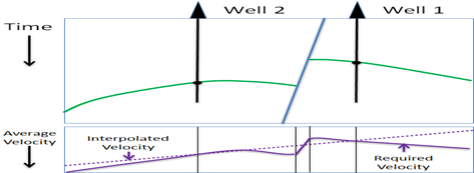The Geophysics Special Interest Group held its 2016 seminar on the theme of Getting Value from Geophysics: Economy, Efficiency and Effectiveness for Low Oil Prices at the Geological Society. We are most grateful to Cairn Energy, Paradigm and Seismic Image Processing for their generous sponsorship, which enabled us to host the event at a very economical £100 per PESGB member and attract a good audience at a time when training and conferences are under close scrutiny by management. Approximately 100 geoscientists and others attended the seminar which in consideration of the economic climate was a considerable success (we budgeted 70-100) and we were able to make a modest surplus for the PESGB coffers. Thank you to all the sponsors, speakers and delegates for supporting the seminar.
The seminar which was spread over two days was opened by Martin Millwood Hargraves with a keynote talk which highlighted the value of integration and showed new technology developments in reservoir inversion studies with multiple rock physics models. The talks were all excellent with a wide spectrum of interesting topics, including applications of satellite gravity (free to all), limitations on seismic acquisition vessel size and trends towards multiple seismic sources to increase coverage, towed streamer electromagnetics, and a talk by Bernstein’s on the Great Oil Shake-Out which gave plenty of encouragement that our industry has a significant role to play in the next two decades at least. The latter presentation was followed by a panel discussion on the future trends in geophysical technology. A subsequent panel discussion debated the skills required for successful geophysical careers for the 21st century.
Feedback on the seminar from the attendees was as follows:
84% technical value of talks presented
100% rated organisation good to excellent
90% rated abstract volume good to excellent
94% rated venue/location good to excellent
81% rated networking good to excellent
75% rated catering good to excellent – we will try and do better next time
As a consequence of the excellent feedback, the un-official, un-elected and un-paid Geophysics SIG committee (join us if you wish) who are gluttons for punishment have decided that they wish to propose to you the membership the next geophysics seminar, to be held in a similar venue and format in October 2017.
We have selected three possible themes and are offering these to you to vote for the one you would most like to attend:
1. Geophysical Case Studies: Successes and Challenges
2. Quantitative Interpretation: What does it mean, is it any good, and what’s next in QI
3. Field development and production geophysics: including nodes, multicomponent, towed streamer 4D, case studies
Please participate in the survey by going to https://www.surveymonkey.co.uk/r/LCV2ZVV by the end of February – it will only take one minute
PESGB Geophysics SIG Committee (UUU)





